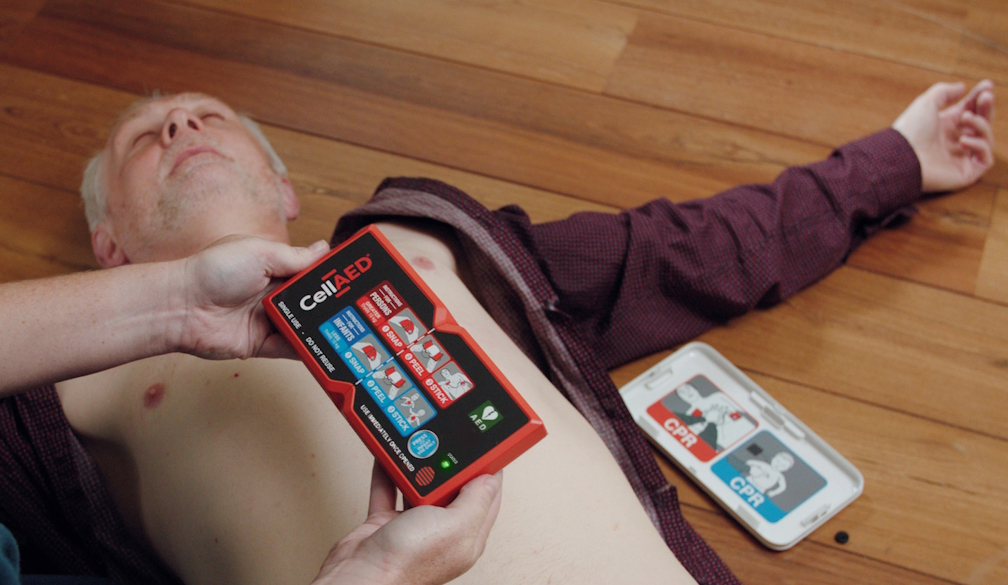Senior installs communal defibrillator on balcony for neighbours to use

Aussie senior Barry Reid takes his role in the community very seriously and has installed a communal defibrillator for the neighbours to use if any of them have a sudden cardiac arrest.
More than 25,000 people die in Australia every year following cardiac arrest, 80 per cent of which occur in the home. Retired school teacher Barry is surrounded by elderly neighbours at his home in Kanahooka, south of Wollongong,and has installed the world’s first hand-held personal defibrillator, CellAED, on his balcony in case anyone needs it.
“Trying to get an ambulance to you for that kind of treatment is a bit of a lottery, and if someone goes into sudden cardiac arrest, every second counts,” he says. “I have neighbours in their 80s with heart issues, so it may come in useful and I’ve trained them what to do.”
Cardiac arrest, which kills 55 Australians every day, yet an alarming 9 out of 10 people do not know what to do in the case of an emergency. Sudden cardiac arrest kills quickly and for every minute without treatment, chances of survival decrease by 10 per cent. Survival relies on witnesses to be able to respond immediately with CPR and defibrillation.
Until now, defibrillators were unlikely to be in the home due to their high cost of ownership for most households but an Australian has created the world’s first personal defibrillator.. Designed for its simplicity of use for minimally trained individuals, CellAED has a 3-step activation process of ‘Snap Peel Stick’. It can be applied to someone in seconds; the user will snap the device to turn on and start voice instructions, peel to separate the two electrode gel pads, and stick the pads to the bare chest.
“Now there are affordable defibrillators on the market that are small enough to fit in your bag, car glove box – or in my case, balcony – everyone should have one,” adds Barry.
“It’s all very well knowing how to do CPR but even if you’re proficient in it, with the breathing and pressing down on the sternum… you’ve got to be pretty strong to do that.
“With CellAED, you snap it open, put the pads open and follow the prompts, it's much easier.”
Rapid Response Revival® created CellAED, a personal defibrillator in the hope of tackling the unacceptably low survival rates of sudden cardiac arrest.
CellAED is designed to be deployed in seconds, and costs up to one-tenth the price of conventional AEDs. This technology has taken more than five years and more than $30 million in private investment to achieve. Priced from $359, it weighs only 300 grams with simple snap, peel, stick technology, versus hospital use defibrillators that weigh a kilo and cost upwards of $2,000, making it accessible to homes and workplaces around the country.





